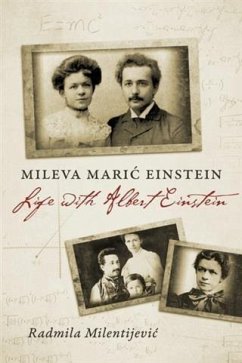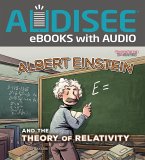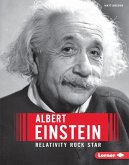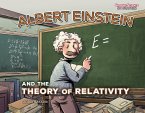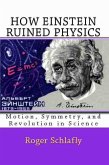Mileva Maric was the only woman to enter the Section of Mathematics and Physics at the elite Polytechnic in Zurich in 1896. She was a person of extraordinary intelligence and talent. However, when Mileva met Albert Einstein that year, her fate became bound to his life and ambition. Raised in a patriarchal Serbian family, she was willing to sacrifice her own academic career and even her visibility to the dream of achieving something greater, together. Mileva's decision to put her exceptional talents in the service of Einstein's career led to her invaluable contributions to his scientific achievements. Einstein wrote about her as an "equal" referring to "our new studies," "our investigations," "our views," "our theory," "our paper," "our work on relative motion." He also relied heavily on Mileva for emotional support at a critical time in his life. "Without you I lack self-confidence, pleasure in work . . . without you my life is no life." Before their marriage, she bore Einstein a daughter, whom she gave up for adoption to protect Einstein's career, an act that cast a heavy shadow over the remainder of her life. Einstein married Mileva in defiance of strong opposition from his parents. She wasn't beautiful, she was older, she walked with a limp and she wasn't Jewish. "You are ruining your future and blocking your path through life . . . That woman cannot gain entrance to a decent family," his mother wrote to him. Yet, Einstein was magnetically drawn to her independence, strength and formidable intellect during the most creative period of his entire life.
As Einstein's reputation and adulation surged so did his womanizing. Einstein's conduct in ending their marriage was so brutal that it dismayed even their closest friends and came perilously close to destroying Mileva. Although Einstein resisted, the divorce decree awarded all future Nobel Prize money to Mileva as her property. This was poetic justice, for it represented a symbolic measure of recognition for her contributions to Einstein's scientific achievements.
Despite their bitter divorce, they shared concern for their two sons, and maintained a steady, if often troubled, relationship until Mileva's death. Einstein sought the comfort of her company, stayed at her Zurich apartment numerous times, and tried to provide help in his own way when she needed it. While sometimes touchingly considerate, Einstein was vindictive and brutal when challenged or hurt.
A true understanding of Einstein as both a man and a genius, is impossible without a detailed study of the woman who loved Einstein so deeply with an emotional and intellectual bond that bore a very rare fruit. It changed our view of the universe.
Dieser Download kann aus rechtlichen Gründen nur mit Rechnungsadresse in A, B, BG, CY, CZ, D, DK, EW, E, FIN, F, GR, HR, H, IRL, I, LT, L, LR, M, NL, PL, P, R, S, SLO, SK ausgeliefert werden.

